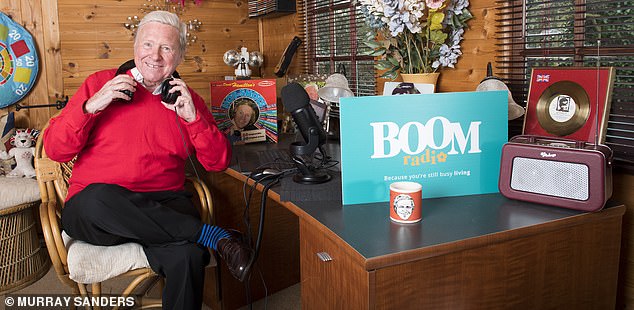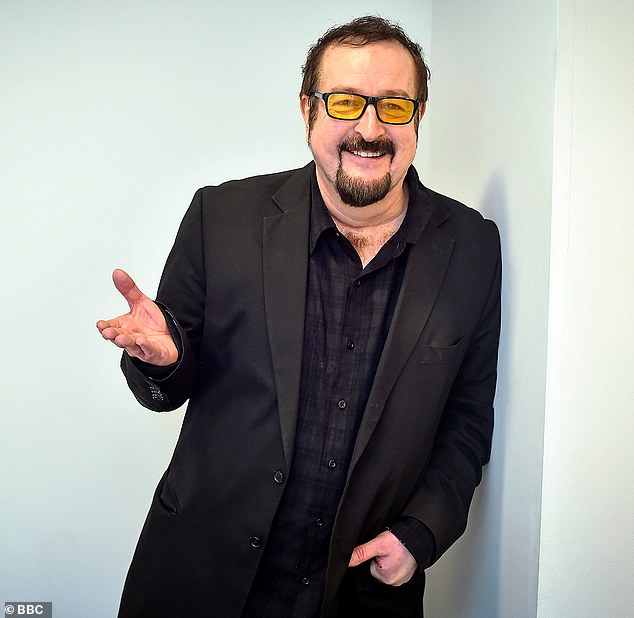Bosses at BBC Radio 2 caused uproar when they axed veteran broadcasters such as Steve Wright in a bid to attract younger listeners.
Now they are under fire again over plans to win back the older audience who had subsequently deserted the station.
Stars at Boom Radio, which was established in 2021 to appeal to those ‘baby boomers’ and is now the UK’s fastest growing commercial station, say Radio 2’s plans for an additional digital service, Radio 2 Extra, are a blatant ‘rip-off’ which threatens their own future.
Boom presenter David ‘Diddy‘ Hamilton, who worked at the BBC for 25 years, last night branded the corporation ‘pathetic’. He told The Mail on Sunday: ‘I think the BBC should be bigger than this.
‘It is still the premier broadcasting organisation in the country and it shouldn’t be abandoning an audience, then finding somebody else who has made a great success of catering for that audience and then want them back. It’s pathetic.’
Phil Riley, co-founder of Boom Radio, which has 750,000 listeners, believes the proposed scheme could sound the death knell for his station.
He wants Ofcom to reject the idea and said: ‘There is no question we could go out of business. The BBC plans are literally a rip-off Boom Radio. There is nothing new or innovative about what they are proposing.’
His comments come as radio regulator Ofcom finalises its decision on the BBC’s proposal.

Boom presenter David ‘Diddy’ Hamilton, who worked at the BBC for 25 years, last night branded the corporation ‘pathetic’

Bosses at BBC Radio 2 caused uproar when they axed veteran broadcasters such as Steve Wright in a bid to attract younger listeners
The Mail on Sunday understands Ofcom will make its decision before a BBC board meeting on April 2 – to potentially rubber-stamp it.
Hamilton, 86, said bosses at Radio 2 had made a huge mistake by shedding some older presenters.
He said: ‘We are the radio generation. That was our window to the world but the younger generation have so many other ways of accessing music. They are not listening to the radio.’
Lorna Clarke, the BBC’s director of music, said: ‘Our music extensions allow us to support new music, showcase British talent, resurface performances from our unrivalled archive, and help audiences discover a greater range of music than what’s available on the market.’






